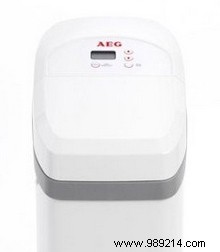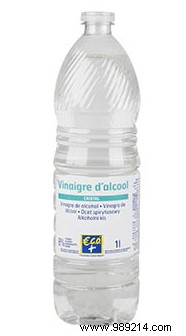
To be able to deal effectively with water hardness, the use of a water softener is strongly recommended. Thanks to a physiochemical process, it is possible to soften the water and thus avoid the damage caused by limescale on sanitary appliances.
Water softening is a technique based on the principle of ion exchange. The idea is simply to exchange the magnesium and calcium ions responsible for limescale into sodium ions. For this to be possible, the water must pass through a solid support called the resin, which takes the form of porous beads. When hard water comes into contact with this resin, calcium and magnesium ions exchange for sodium ions.
To know if you need this type of device, you just need to measure the hardness of your water. If it is higher than 121 mg/L, it means you need to install one. On the market, you can find different models. Among the simplest are manual softeners that offer manual brining, backwashing and rinsing. Then there is the portable and peripheral softener whose cylinder replacement must be carried out by a professional. With semi-automatic devices, only the regeneration is not automated. Finally, there are the automatic modules which are appreciated because they are efficient and easy to live with.
One of the first advantages attributed to the use of a water softener is that it reduces the rate of limestone in the water, which helps to optimize the life of household appliances, pipes without forget the boiler. Indeed, the accumulation of limestone tends to cause a rise in temperature up to more than 60°C. It is for this reason that there are tablets intended to avoid these limescale deposits which are sold commercially.
In addition, the use of a softener offers a certain comfort of life in the house. Softened water has the ability to considerably improve the effectiveness of products such as detergent, shampoo or soap. It softens and softens the laundry more and prevents the formation of tartar on enamelled objects. The dishes are also more sparkling.

Unfortunately, the water softener does not only offer advantages. It also has some drawbacks. Regarding water consumption, you should know that the device causes great waste during the regeneration of the resin because a lot of water must be discharged into the sewers for the system to work properly.
But that's not all. The humidity of the resins can cause bacterial proliferation, especially if checks are not carried out regularly. In terms of taste, softened water is quite salty and is not recommended for the health of infants and pregnant women. It is very important to continue to have an access point of untreated water in the house. And for many household appliances, you can avoid the deposit of limestone by putting a squirt of white vinegar with each use (dishwasher, washing machine...).
In short, water softened by an additional device is not of much interest...